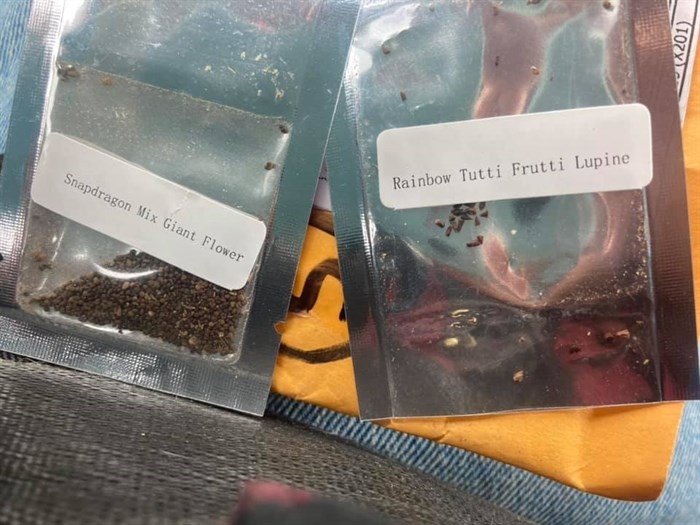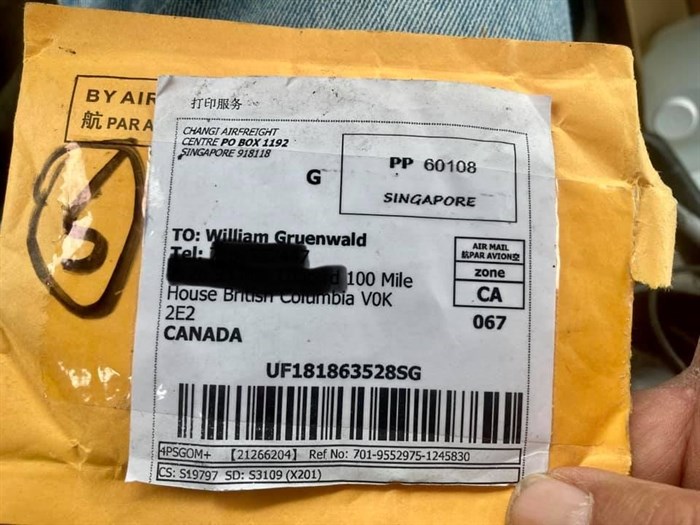
Will Gruenwald found these seeds in his mailbox in 100 Mile House, May 19, 2021.
Image Credit: SUBMITTED/Will Gruenwald
May 24, 2021 - 9:00 AM
A 100 Mile House resident is perplexed after he received a package of seeds from Singapore this week he never ordered.
Will Gruenwald is originally from Chilliwack, and he said in the Fraser Valley others also reported strange seeds in the mail last year.
He saw the seeds in his mailbox, May 19. He checked with the RCMP, but was told the proper place to report the seeds to the Canadian Food Inspection Agency, which he plans to do.
If they don’t take them, he will burn them, he said, as he’s concerned the seeds might contain an invasive species. The seeds also don’t resemble their labels, he said.

Will Gruenwald found these seeds in his mailbox in 100 Mile House, May 19, 2021.
Image Credit: SUBMITTED/Will Gruenwald
The CFIA originally reported it received more than 750 reports across Canadian provinces from people who have received unrequested packages of unknown seeds in August 2020.
“Similar to the U.S. Department of Agriculture, the Canadian Food Inspection Agency concluded that the seeds most likely originated from a brushing scam. An e-commerce business likely tried to boost online sales by sending unrequested products to customers and posting fake positive reviews,” according to an emailed statement from the agency.
The CFIA also warns against purchasing seeds online as they can be species of invasive plants to Canada or contain pathogens and fungi.
"E-commerce activity is booming during the COVID-19 pandemic as Canadians go online to buy household items, and this includes seeds for their gardens," said Dr. Bill Anderson, of the Canadian Food Inspection Agency, in a statement.
The U.S. Department of Agriculture also reported instances of residents receiving unsolicited packages of seeds from China last year.
The CFIA asks Canadians who receive seeds they did not order to put the seeds, packaging, and mailing label in a sealed bag inside a second sealed bag, report them to a regional CFIA office, await further direction from the CFIA and refrain from planting, flushing, or composting the seeds to avoid them sprouting and spreading.
More information about foreign seeds can be found on the food inspection agency's website.
To contact a reporter for this story, email Carli Berry or call 250-864-7494 or email the editor. You can also submit photos, videos or news tips to the newsroom and be entered to win a monthly prize draw.
We welcome your comments and opinions on our stories but play nice. We won't censor or delete comments unless they contain off-topic statements or links, unnecessary vulgarity, false facts, spam or obviously fake profiles. If you have any concerns about what you see in comments, email the editor in the link above.
News from © iNFOnews, 2021